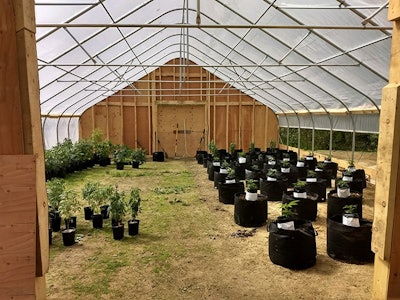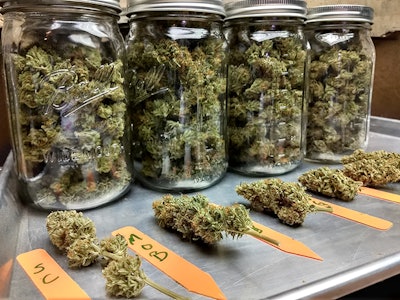
While securing a state license can be daunting, getting approval from local municipalities to establish a cannabis business within their city limits can pose its own set of challenges, from moratoriums to impossible zoning requirements.
CannaAdvisors, a Colorado-based cannabis consultancy, worked with some of the first licensees in Massachusetts’ medical marijuana program and has clients looking to enter the upcoming adult-use market. “Massachusetts in particular has been so much driven by the challenges at the local level,” Founding Partner Diane Czarkowski tells Cannabis Business Times.
One of the requirements for obtaining a cannabis business license in the state is a letter of non-opposition from the local municipality that shows, in writing, that the city or town does not prohibit the cannabis operation, she says. Receiving this clearance has been difficult for some businesses, Czarkowski adds.
“Really, in all cases—Massachusetts, Maine and Vermont—they have left it to the decision of the local municipality of whether or not they want to pass moratoriums [or] whether they want to have their own sets of zoning requirements, which sometimes even involves having a town hall meeting,” Czarkowski adds.
Despite legalization bills passing strongly by municipalities’ constituents, cities and towns can sometimes have a “not in my backyard” mentality. As Czarkowski describes it, voters may think, “it’s OK to have it in the state, but we don’t want it here.”
“With zoning, we are treated unfairly, in my view, [compared to] other industries,” adds Robert Head, CEO of Blue Cord Farms and Maine-based Pleasant Mountain Organics. “If I was growing corn, I wouldn’t need to go to the city and get special permits to grow corn.”

Head and Blue Cord Farms are based in Texas and manage the business side of Pleasant Mountain Organics, his business partner’s farm, which has two greenhouses and participates in Maine’s caregiver program. The farm is permitted by law to grow 30 plants per caregiver and is maxed out with three caregivers and 90 flowering plants.
“[The municipality’s] got to be concerned with their own constituents and the people in the city who also don’t know much about it, and because they have to, they wind up implementing these laws … to make the people feel better [about the cannabis industry], but don’t do anything but hurt the actual industry and the person,” Head says. “It is a growing pain.”
Moratoriums
Many places have not distinguished between medical and adult-use marijuana, Czarkowski adds, and ban all cannabis businesses from operating within their borders.
Head, however, says that many municipalities in Maine have made a distinction between medical and recreational. The City of Warren, where Pleasant Mountain Organics is located, will not allow cultivators to grow cannabis for the adult-use market, although they are permitted to continue growing medical marijuana under the state’s caregiver program, he says.
“The city is stating that they don’t want to have these large companies coming in here and having massive fields of cannabis growing because maybe the smell or something of that nature,” he says. “And I can see that, but I think the problem … is that the law was written so that you wouldn’t have large facilities operating out there, so you wouldn’t have 30 acres of marijuana just growing out in the open. You set up canopies in a certain way.”

Prohibiting cultivators from growing for the adult-use market has a negative financial impact on the medical community, Head adds. “For example, there are many caregivers out there who are only growing 30 plants, and they can only make so much on 30 plants,” he says. “When the recreational market comes in, the price per pound will drop, but where does that leave that caregiver?”
Caregivers may be forced to find other jobs to supplement their incomes if they are not able to make ends meet with what they are allowed to grow and sell to patients, Head says. “When you start restricting a person’s business model and they’re not allowed to sell to as many people as they should be allowed to sell to and then on top of that you say, ‘Well, we’re not going to allow recreational,’ you’re stifling a small business owner,” he adds.
Some municipalities have simply implemented blanket moratoriums or very strict zoning regulations that make it difficult or even impossible for cannabis businesses to find a qualifying location, Czarkowski says. A common regulation is creating a buffer zone that prohibits operations from locating within a specified distance of a school, for example. State law might mandate that a cannabis business cannot be within 500 feet of a school, but the local government could enact even stricter distance requirements of 1,000 or 1,500 feet. Or, municipalities might put distance restrictions in place for additional types of buildings, such as daycares, public parks or churches, Czarkowski adds. “And just by putting some of those restrictions in there, you might have a map of the area and determine that there are actually no properties that meet all of the specifications,” she says.
These types of local restrictions are a way to enact more permanent moratoriums, Czarkowski says, as most traditional moratoriums are only temporary bans. “If they pass some type of moratorium, that might only be good for a certain amount of time, and then they have to keep extending that moratorium,” she says. “So, a way to eliminate a moratorium is just to create zoning restrictions that disqualify them based on not being able to meet all of those regulations.”
“One of the arguments we have is when you’re zoning, the black market becomes more lucrative and more appealing to these guys because of all the restrictions,” Head adds.
Finding Common Ground
CannaAdvisors urges its clients to focus on outreach and meeting with city council members and the building and zoning departments when they decide to locate in a particular municipality, Czarkowski says. Each of these local groups should understand the cannabis business’s mission and company values.
“I spend a lot of time contacting the legal team up there, watching the laws getting passed, talking to the locals, talking to the local towns, and one thing that I’ve noticed is that [being successful in the cannabis industry] requires that,” Head says.
Czarkowski says businesses should even go a step further with charitable efforts in their communities. “We strongly encourage that they have some kind of a program where they’re giving back in some way to their communities,” she says. “Cannabis businesses can even try to find something in particular that the community is interested in funding and set up an agreement with the municipality to give back a certain portion of their revenues to the cause.”
“Educational programs are always something that we encourage them to do so that [the community knows] that they’re concerned about being good stewards of the industry and are educating the public of the harms of using drugs in general or just safe methods of consumption for cannabis use,” Czarkowski adds. “We really coach our clients early on as soon as they know that they’re going to be working in an area to start doing that community building.”
“I think one of the biggest problems is that there’s just not enough education out there for people making those decisions,” Head agrees.

Cannabis business operators should not be timid when it comes to letting the community know who they are and what their intentions are, Czarkowski adds. “You have to be very comfortable with being the new face of the cannabis industry,” she says.
Business owners should have a deep understanding of the history of cannabis and local laws in order to educate the community and gain acceptance, Czarkowski adds. “They have to be comfortable in that role. They have to be those educators.”
Local zoning will likely be an ongoing challenge for cannabis businesses until the federal government embraces marijuana policy reform, Head says. “We’ve made it so complex that the only way to fix it is to scrap it and start over, and once the federal government comes around and legalizes it, unschedules it and says, ‘Listen, we’ve got nothing to do with it—if states’ rights want to take care of it, let states’ rights take care of it,' then we’re going to see a lot less issues.”
And while Head is looking to expand his business, he will be doing it outside of Warren, Maine. “When we do expand, we’re not going to look at Warren,” he says. “When we look to do recreational-type growing, we’ll leave this farm specifically for medical and caregiver opportunities, and then we’ll expand to a recreational farm and some land where they will allow it. It’s unfortunate that we have to do something like that, but that was also something we thought about.”
Photos courtesy of Blue Cord Farms


























